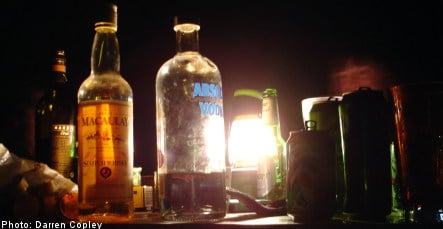Despite more advertising and illegal smuggled liquor in Sweden, teenagers drink less today than they did seven years ago, according to an institute press release on Monday.
The institute explains that parents in Sweden have “understood that children and alcohol do not go together” and that “more (teenagers) consider it hip to be sober”.
The institute’s claims are supported by new statistics from an annual survey of senior high school students in Stockholm. The report shows that the number of pupils that had drunk alcohol in recent months had declined from 74 percent in 2008 to 68 percent in 2009.
Despite the wide prevalence of smuggled alcohol in Sweden, the majority of the pupils acquired their liquor from the state monopoly retailer, Systembolaget.
“It is usually slightly older friends that buy the alcohol. It happens that parents do so, but not as often,” according to Håkan Leifland who works at an addiction centre in Stockholm.
In the coming days Sweden’s 108,000 parents with children born in 1995 will receive a copy of a booklet entitled “The teenage phrase-book” (Tonårsparlören) – a help guide to assist them in addressing the sensitive subject of alcohol with their pubescent offspring.
“Research indicates that the later the alcohol debut, the lower the risk for future alcohol problems,” the institute writes in a press release on Monday.
The booklet was launched seven years ago and the institute claims that since then the change in attitudes among parents has been considerable.
Seven years ago it was considered quite normal for parents to allow their teenage children to taste alcohol in the home but now this number is very small. Consumption has as a result decreased, the institute states.
“This is a positive development, and at same time somewhat surprising, it is not that it has become harder for teenagers to get hold of alcohol,” said Sven Andréasson at the institute.
Andréasson warned that there are signs that the decline in consumption is however levelling off.
“It is therefore important to keep the discussion alive, which we hope the teenage phrase-book will contribute to.”
The institute emphasized that the purpose of the booklet is not to point the finger but to base its advice on sound scientific research “that is easy to understand and accept”.


 Please whitelist us to continue reading.
Please whitelist us to continue reading.
Member comments